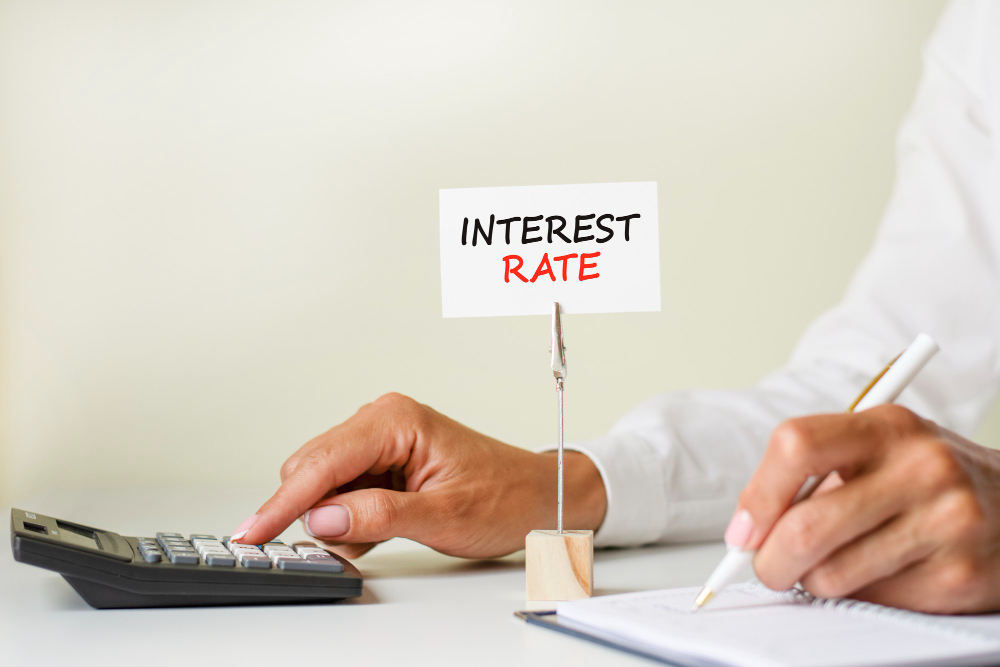Deciding between a fixed and variable interest rate is one of the first choices you will have to make when your business needs a loan. Both options have their benefits and disadvantages and the right choice depends on your company’s specific requirements. If you have been wondering how to choose the best option for your business, then you are at the right spot. This blog will explain the fixed vs. variable interest rates in business loans along with its pros and cons helping you make the right decision.
What Are Fixed and Variable Interest Rates?
- Fixed interest rates: These rates stay the same throughout the life of your loan. Fixed interest rates mean that no matter what happens in the market, your repayments will always be the same.
- Variable interest rates: These rates are dependent on market conditions, so they can go up or down over time. Variable interest rates mean your repayments may change as interest rates fluctuate.
Pros and Cons of Fixed Interest Rates in Business Loans
Pros
- Stability
A fixed interest rate gives you certainty about what your monthly payments will be. This makes it easier to plan ahead and budget for the future, without worrying about any sudden surprises. - Protection Against Rate Hikes
With a fixed interest rate, you are protected from any future increases, which is a big advantage if market conditions are expected to be unpredictable. - Long-Term Planning
Fixed interest rate makes long-term business planning easier. You can project your future cash flow and know exactly what your repayments will be, which can help with planning for growth or managing finances.
Cons
- Higher Initial Rates
The downside of fixed interest rates is that they often start higher than variable rates. So, you might pay more at the start of your loan, even though the rate won’t change over time. - Less Flexibility
If interest rates drop in the market, you won’t benefit from a fixed-rate loan. That means you will be stuck paying the same rate, even if rates go down elsewhere. You may have to refinance to get a better deal, which takes time and effort. - Early Repayment Penalties
Some fixed-rate business loans come with penalties if you decide to pay off your loan early. This is something to keep in mind if you are thinking about paying off your loan ahead of schedule.

Pros and Cons of Variable Interest Rates in Business Loans
Pros
- Lower Initial Rates
One of the main benefits of variable interest rate business loans is that the initial rate is often lower than a fixed rate. This can result in smaller monthly payments at the start, which can be useful if you need extra cash flow in the early stages of your loan. - Benefit from Rate Drops
If interest rates fall, your monthly payments could go down as well. So, in a market where rates are expected to drop, a variable interest rate could work out to be cheaper in the long run. - Short-Term Loan Advantage
Variable rates are often more beneficial for short-term loans. Since the interest rate won’t fluctuate as much in a short time, you are less likely to see major increases in repayments during the loan term.
Cons
- Payment Uncertainty
If interest rates rise, so will your payments, and this could cause cash flow issues if you’re not prepared for the increase. - Increased Risk
If the market turns against you and interest rates increase, your loan repayments could rise significantly, putting pressure on your finances. - Cash Flow Strain
As variable rates cause your repayments to fluctuate, this can be a strain on your cash flow. For businesses with tight budgets, this unpredictability can make managing finances more difficult.
How to Choose Between Fixed and Variable Interest Rates
Assess Your Business’s Financial Stability
If your business has stable and predictable cash flow, a fixed interest rate could give you peace of mind. However, if your business is just starting out or your revenue fluctuates, a variable rate might offer the flexibility you need.
Consider Loan Duration
Fixed interest rates are often better for long-term loans since you’ll have a steady repayment schedule for years. On the other hand, if you’re looking for a short-term loan, a variable interest rate might give you the advantage of lower initial payments.
Evaluate Market Trends
If rates are expected to rise in the near future, it may be better to lock in a fixed rate now. But if rates are low or likely to drop, a variable rate could save you money.
Risk Tolerance
If you prefer the peace of mind that comes with knowing exactly what your repayments will be, a fixed-rate loan may be the better choice. If you can handle some fluctuations in payments and hope to benefit from lower rates, then a variable-rate loan might be right for you.
Tips for Negotiating Favorable Interest Rates
Get quotes from different lenders and compare their terms. If you have a good credit history, you may be able to negotiate better rates. Offering collateral, such as assets or personal guarantees, can also help you secure a lower interest rate.
Making a decision for fixed vs. variable interest rates in business loans ultimately depends on your business’s financial situation. You need to consider how long you need the loan and your comfort level with risk. Weigh the pros and cons carefully and consult with a financial advisor to ensure you’re making the best choice for your company’s needs.
Looking for tailored business funding advice? Contact experts at Funding Guru and fuel your business growth today.

